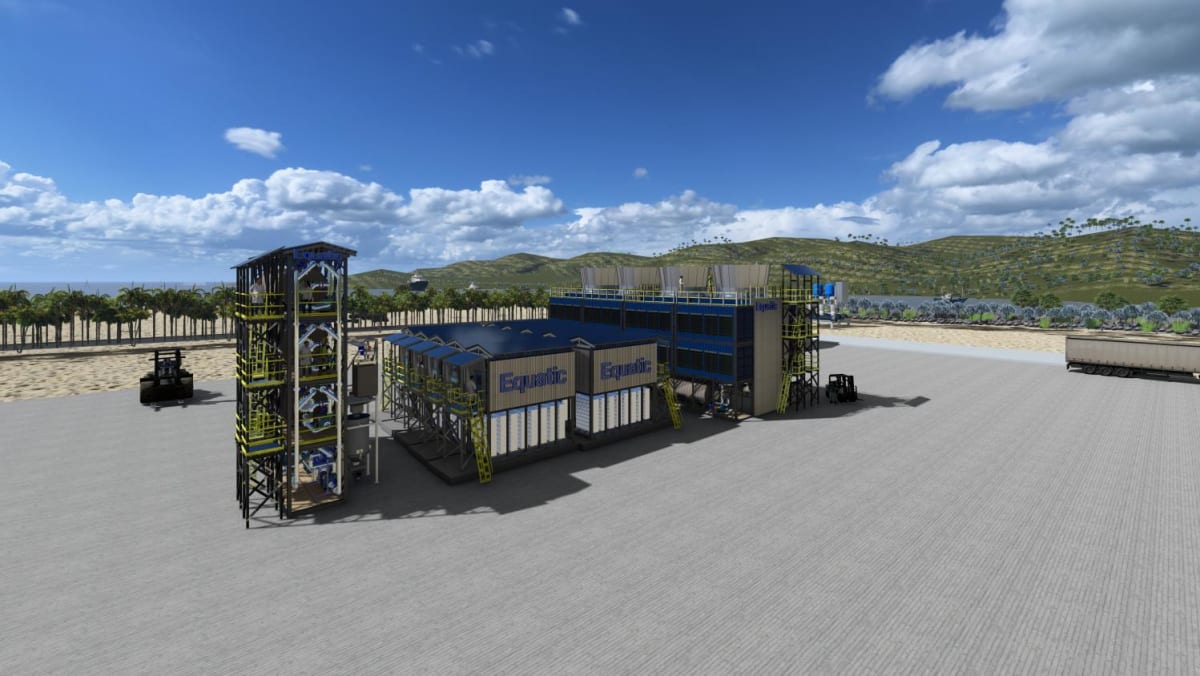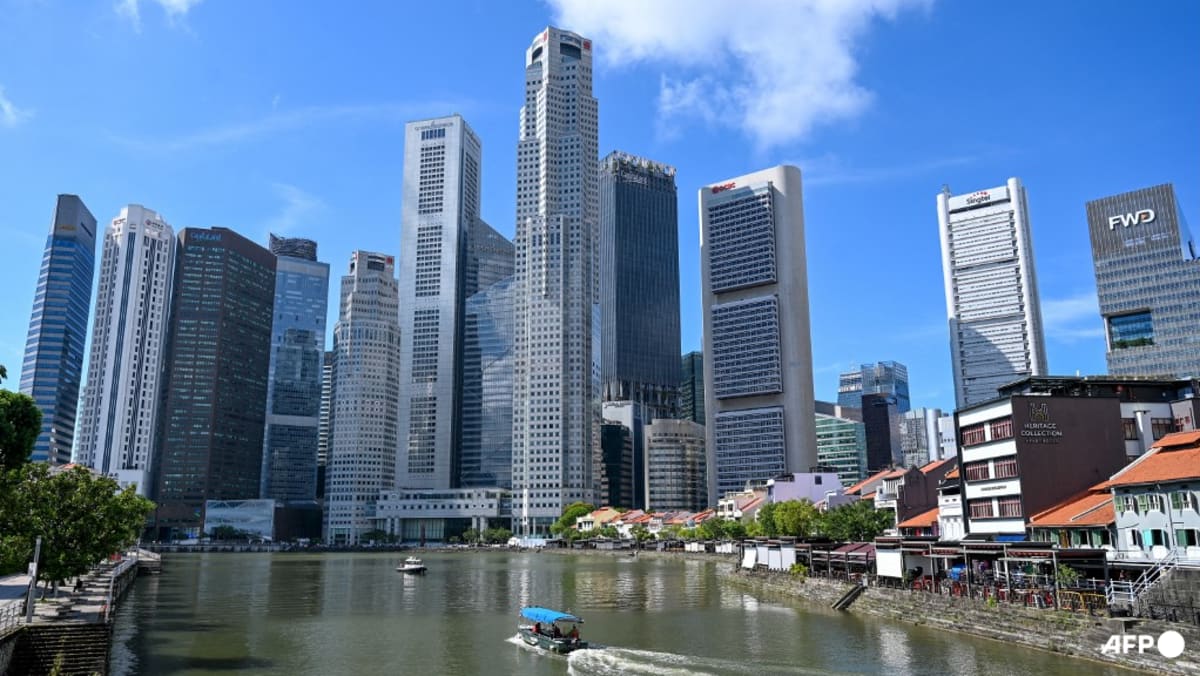SINGAPORE — Singapore’s national water agency PUB is teaming up with the University of California (UCLA) and a UCLA-linked startup to build the world’s largest plant that removes carbon dioxide from seawater and the atmosphere.
This comes after a successful pilot of such a plant here that was launched in April 2023 by PUB, UCLA and Equatic, a company spun out of research at the university.
When fully completed in 18 months, the new plant at PUB’s research and development facility in Tuas will be equipped to remove 10 metric tonnes of carbon dioxide per day from seawater and the atmosphere.
This is 100 times more than the existing pilot plant, which can remove 0.1 metric tonnes of carbon dioxide per day, PUB, UCLA and Equatic said in a joint statement on Tuesday (Feb 27).
A metric ton is the equivalent of 1,000kg.
The US$20 million (S$26.9 million) cost of the new facility — named Equatic-1 — will be co-funded by PUB, Singapore’s National Research Foundation and UCLA’s Institute for Carbon Management.
According to the World Bank, the average global annual carbon emissions per capita in 2020 are about 4.3 metric tons.
This means that at full scale, Equatic-1 can remove as much carbon dioxide as what nearly 850 people emit annually.
When the plant has fulfilled its technical demonstrative objectives, Equatic will scale and commercialise the technology globally, with plants designed to remove nearly 110,000 metric tons of carbon dioxide per year — equivalent to the annual carbon emissions of more than 25,000 individuals.
TODAY understands that the pilot plant will be dismantled and the new plant built on top of it.
Equatic is a start-up based in Los Angeles, California, and was founded in 2021 by Gaurav N Sant, director of UCLA Institute of Carbon Management.
Dr Pang Chee Meng, PUB’s chief engineering and technology officer, said: “We are pleased to further our collaboration with UCLA and Equatic, to develop a solution that has potential synergies with PUB’s desalination plants.
“At PUB, we firmly believe that technological advancements, delivered in partnership with academia and the private sector, hold the key to addressing the complex challenges posed by climate change.”
HOW THE PROCESS WORKS
The Equatic process activates and expands the ocean’s natural ability to store carbon dioxide by removing dissolved carbon dioxide while enhancing the ocean’s capacity to absorb more of the greenhouse gas.
Utilising electrolysis, an electrical current is passed through seawater brought in from the adjacent desalination plants operated by PUB.
“The process induces a series of chemical reactions that then breaks water into its carbon-negative hydrogen and oxygen constituents while securely storing both dissolved and atmospheric carbon dioxide in the form of solid calcium and magnesium-based materials for at least 10,000 years,” the joint statement said.
This process also produces useful by-products such as solid carbonates, hydrogen, and softened water. These solid carbonates could potentially be used in the construction industry for land restoration, cement, or concrete.
The technology was named one of Time magazine’s Best Inventions of 2023 and listed among science website Popular Science’s 50 greatest innovations of 2023.
It also won the 2021 Liveability Challenge, a global competition backed by Singapore-based non-profit Temasek Foundation with 450 applicants from more than 60 countries.
“If successful, the pioneering technology would allow for the greenhouse gas to be removed and durably stored, while simultaneously producing nearly 300kg of carbon-negative hydrogen daily,” the joint statement said.
PUB said that it has set a target to achieve net zero emissions by 2045 and takes a three-pronged approach to replace, reduce, and remove carbon emissions and close its carbon loop.
Besides replacing fossil fuel sources with renewable solar energy and investing in research and development to reduce the energy required in water treatment processes, capturing and removing carbon released into the atmosphere is a key thrust of PUB’s decarbonisation strategy.
“This collaboration with UCLA and Equatic is part of Singapore’s broader efforts to source for novel technologies, such as carbon capture, utilisation and storage, which could contribute to mitigating the impacts of climate change,” the joint statement read.













